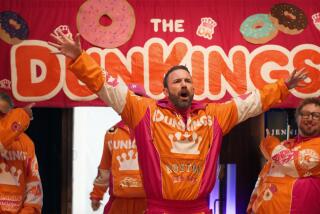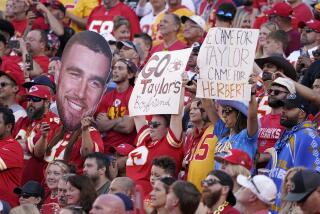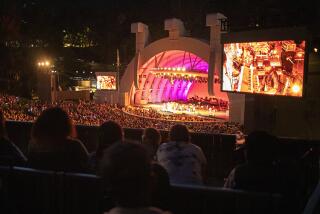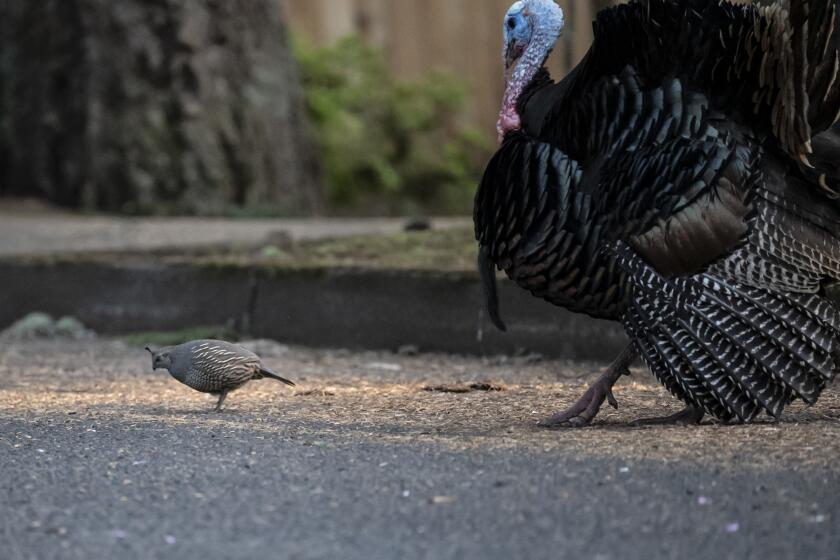Op-Ed: Boston vs. Los Angeles: It’s more a cultural clash than a Super Bowl
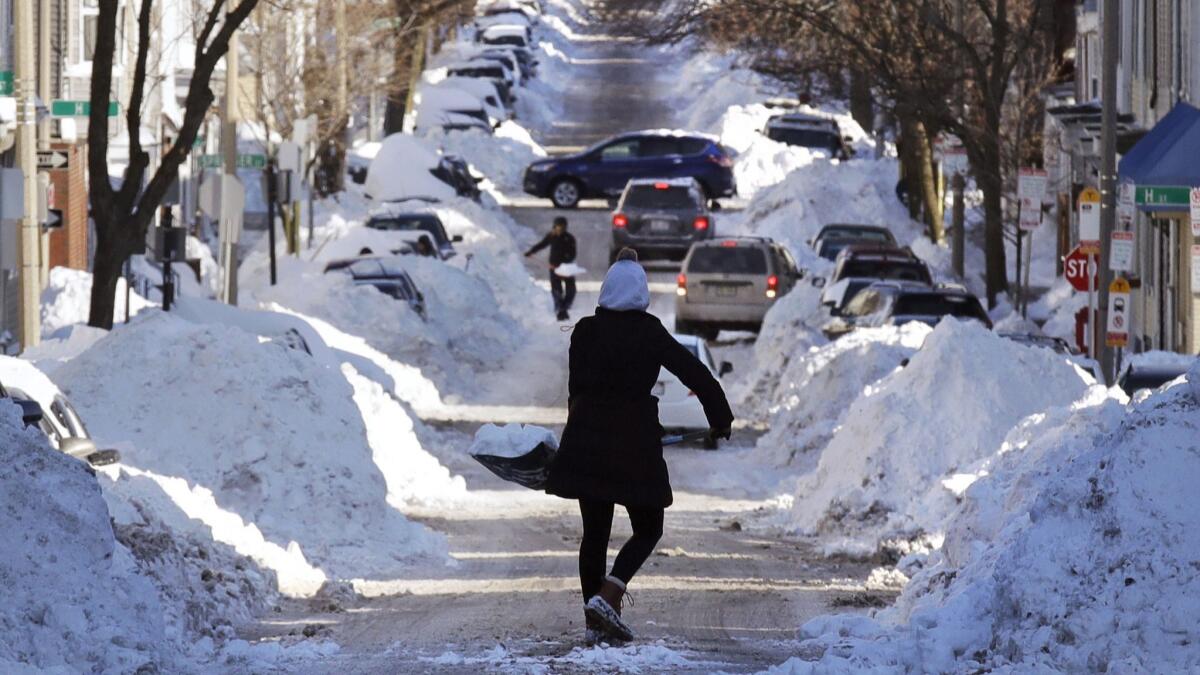
In the great Venn diagram of American life the common area of cultural overlap between California and Massachusetts can seem infinitesimal, little besides Adrian Beltre and the beach. And even those points of contact don’t have perfect overlays.
Beltre played seven seasons in Dodger Stadium and only one in Fenway Park. The winter beach-water temperatures in Boston are in the low 40s, while the water temperature at Santa Monica the morning of the Super Bowl will be in the mid- to high 50s. It won’t hit that level around here until June.
Is Sunday’s Super Bowl confrontation between New England and Los Angeles therefore destined to be no mere football game, but also a cultural clash?
In the great Venn diagram of American life the common area of cultural overlap between California and Massachusetts can seem infinitesimal.
The TV writer Nell Scovell — the Boston-born creator of “Sabrina, the Teenage Witch,” whose entire seven-year run occurred during the Rams’ reign in St. Louis — has pointed out that Boston gave birth to John Adams the Founding Father while Hollywood came up with “John Adams” the miniseries. “Geographically, Boston and Los Angeles are about as far apart as you can get and still remain in the continental United States,” she once wrote. “The cultural gap is even wider.”
Indeed: Massachusetts had John F. Kennedy, California had Richard Nixon. Boston had Bill Russell, Los Angeles had Wilt Chamberlain. Boston had Arthur Fiedler, Los Angeles has Gustavo Dudamel. Boston had John Winthrop, Hollywood had John Wayne. Boston has Faneuil Hall, Los Angeles has Walt Disney Concert Hall. Boston has the Freedom Trail, Hollywood has the Walk of Fame. Boston has the “Boston marriage,” the long-ago term for the cohabitation of two women, while Hollywood has multiple marriages, an understatement when it comes to Zsa Zsa Gabor. Boston had Emerson and Thoreau, Beverly Hills has Nate and Al. (In the entire Boston area there isn’t a single delicatessen that can match the boiled-chicken-in-the-pot, served with noodles, matzo ball, kreplach and carrots available at 414 N. Beverly Drive.)
In Boston, they say that if you don’t like the weather you should simply wait a while. In Los Angeles, if you don’t like the weather, there’s something seriously wrong with you. Eighteenth century Boston commercial life was defined in part by its port-side chandlers. A large part of 20th century Los Angeles noir life was defined by Raymond Chandler.
“You talk too damn much and too damn much of it is about you,” Chandler had one of his characters say in “The Long Goodbye,” perhaps his signature Los Angeles novel. No one ever said that about Calvin Coolidge, the onetime governor of Massachusetts known for saying almost nothing about himself -- or anything else. It was Silent Cal who, as president, officiated at the dedication of Los Angeles City Hall in 1928. But he didn’t bother to attend the festivities — why go that far west and risk having to talk in public? — and merely pushed a button in the White House to light the building’s fabled beacon all the way across the country.
And yet there are connections between Massachusetts and California that defy the surface stereotypes, deeper even than the fact that both states plausibly can claim Matt Damon and Ben Affleck.
Enter the Fray: First takes on the news of the minute »
“Yes, the places are totally different,” former Massachusetts Gov. Michael Dukakis, who for the past 24 years has taught at UCLA in the winter after spending the fall term at Northeastern University in Boston, told me the other day. “But in recent years California and Massachusetts have come together politically for the Democrats.”
The roots of that may go back to 1960.
“For I stand here tonight facing west on what was once the last frontier,” Sen. John F. Kennedy said in his Memorial Coliseum speech accepting the Democratic presidential nomination that year. “From the lands that stretch 3,000 miles behind us, the pioneers gave up their safety, their comfort and sometimes their lives to build our new West. They were not the captives of their own doubts, nor the prisoners of their own price tags.”
In that speech, Kennedy set forth his vision of the New Frontier: “Beyond that frontier are uncharted areas of science and space, unsolved problems of peace and war, unconquered problems of ignorance and prejudice, unanswered questions of poverty and surplus,” he said. “It would be easier to shrink from that New Frontier, to look to the safe mediocrity of the past, to be lulled by good intentions and high rhetoric.”
In Kennedy’s remarks are the essence of the California ethic, expressed in a Boston accent, years before those 11 Celtics-Lakers NBA championship clashes and last fall’s World Series. Tom Brady, the Patriot quarterback, may be the most emblematic New Englander of the decade, but John F. Kennedy, quite literally a Boston Celtic, remains the most emblematic New Englander of modern times, except perhaps for Robert Frost. He was born in California.
David Shribman, a native of Salem, Mass., was the Washington Bureau chief of the Boston Globe for a decade.
More to Read
A cure for the common opinion
Get thought-provoking perspectives with our weekly newsletter.
You may occasionally receive promotional content from the Los Angeles Times.
